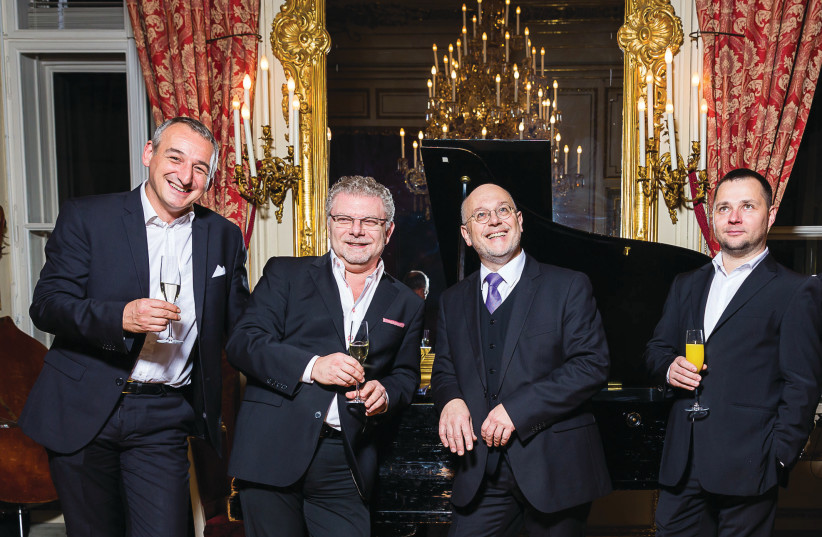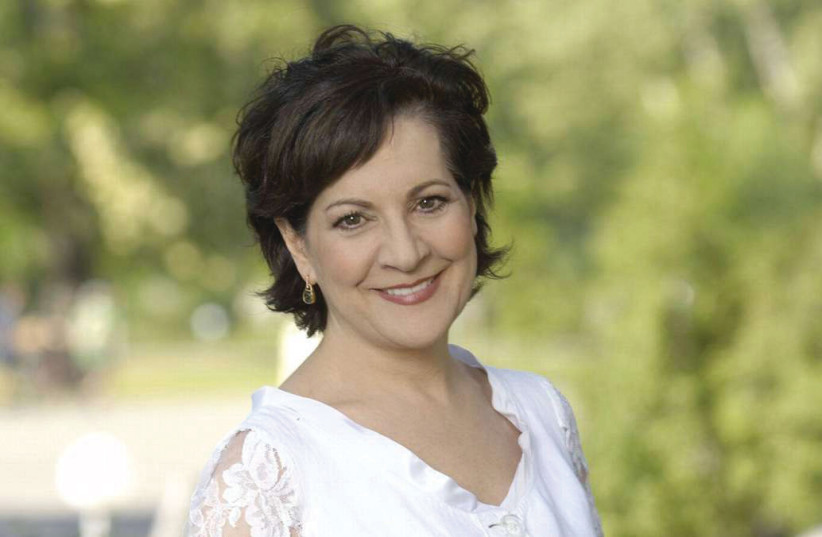Back in the early summer, I was fortunate enough to spend a few days at Schloss Elmau, nestled in the foothills of the Bavarian Alps in southeast Germany. The hotel and expansive grounds exuded a sense of cultured affluence, the kind of place that is, in fact, so perfectly tailored for every whim of the well-heeled that it doesn’t need to make a noise about how luxurious it is. What I found far more intriguing was the fact that the resort – used by the G7 leaders for their annual get-together just two weeks after my stay – was established by early 20th-century theologian and philosopher Johannes Muller as a spiritual retreat.
Muller strongly believed, as we were told by his grandson, the present owner, that Jewish culture was core to German culture. It beggars belief, then, that the same theologian was a supporter of Hitler because he felt the Nazi leader furthered a sense of the collective rather than the individual. Regardless, Muller continued to hail the contribution of Jewish thinkers and artists to Germany’s heritage and to host them; that is, until they were caught by the Nazis or, like Jewish Viennese philosopher Martin Buber, managed to flee.
The part played by Jews in the timeline of German culture across the centuries is central to the thinking behind the annual International Days of Jewish Music festival which, this year, takes place at various locations around Germany from November 21 to 27.
The event is no PC-niceties flash in the pan designed to quell accusatory stirrings. It was founded in 1994 by Hamburg resident Thomas Hummel, with a serious agenda. “We started the Jewish Music Days as an answer to all this antisemitism in Germany,” he declares. “We need more people, every day, to be against [antisemitism] and present and show Jewish tradition, Jewish culture, Jewish music.”
Next week’s program features concerts in synagogues dotted around Germany, such as Berlin, Stavenhagen in the north of the country, Wurzburg in Bavaria, and Goerlitz in the east, right on the Polish border. The latter is a poignant case in point. The Goerlitz Synagogue was built between 1909 and 1911 in the Art Nouveau style. Miraculously, it survived an arson attack on Kristallnacht, sustaining only minor damage due to the fact that, for some reason, local firefighters ignored orders to let the synagogue burn.

Restoration work began on the building in 1991, and the synagogue was officially reopened in July last year, with German President Frank-Walter Steinmeier in attendance. A new Magen David was installed on the roof last September.
The peripatetic element, Hummel feels, offers significant added value to the festival’s ability to have the desired effect and get the word of centuries-old local Jewish culture out to the German populace. “I want to expand this project to all of Germany. It’s only a beginning,” he notes. Considering Hummel already has 29 years of disseminating Jewish culture around the country under his belt, presumably there is a strong springboard in place to continue nurturing the festival.
Germany supports the festival
IT APPEARS that the state is right behind Hummel. “The Interior Ministry, the government of Germany, provides all the [financial] support for this,” he says. “There is the commissioner for Jewish Life in Germany and the Fight against Anti-Semitism, in the Interior Ministry [and community].”
The incumbent is Dr. Felix Klein. There’s more. “Each of the 16 states of Germany has its own commissioner.” That sounds encouraging, particularly in view of the situation in neighboring Austria, where the authorities continue to drag their feet in addressing the country’s not-too-distant dark past.
In pure entertainment terms, Hummel has put together a sumptuous, varied package for cultural consumers around Germany. The week-long program includes cantorial music, hassidic melodies, operettas, Yiddish songs, jazz and, of course, klezmer.
The entertainment ante should jump a couple of notches on the closing day of the festival, when 70-year-old TV personality, actor, singer, author and theater director Ilja Richter adds his hefty persona and skills to the Grunewald in the Orient program. Therein lies a tie with this part of the world with Richter – whose Jewish mother and communist father survived the Holocaust – taking his audience on “a musical-literary journey into the German-Jewish Jerusalem.”

The focus is on Rehavia, which started life in the 1920s. Over the years, the Jerusalem neighborhood became home to many German emigrés and served as a bastion of culture from the former homeland. Richter seasons his own texts with some suitably darkly humorous chansons by Austrian-born Jewish cabaret artist, satirist, composer and author Georg Kreisler, accompanied on the piano by Harry Eimer.
Who is set to perform at the festival?
THERE ARE cultural gems right across the International Days of Jewish Music board, opening at the Synagogue Pestalozzistrasse in Berlin with the “Peace Lights” concert. The Nigun Quartet should get the festival proceedings off to a good, energized and emotive start with its hassidic groove spiced up with funk, Balkan rhythms and jungle dance beats, and a whiff or two of Jewish mysticism. Things then move into more liturgical climes when Argentinean-born German-based cantor Isidoro Abramowicz takes the stage accompanied by an organist.
The itinerary then heads north to Stavenhagen and the island of Usedom, which is shared by Germany and Poland. The former venue sees cellist Emilia-Viktoria Lomakova and violinist Noga-Sarai Bruchstein perform the “Jewish Life in Musical Images” concert with charts that were all the rage in the pre-World War II Germany Jewish community.
Later on Tuesday, there will be a screening, at the Hotel Kaiserhof in Seebad Heringsdorf on Usedom, of the 2019 drama The Song of Names. The movie, which stars Tim Roth and Clive Owen, portrays childhood friends from London whose lives have been changed by World War II, and is based on a novel by British music journalist and author Norman Lebrecht. Lebrecht will be on hand to read excerpts from his book. Incidentally, Usedom was an important place for the Nazi war effort, as it contained a site where the V-2, the world’s first guided ballistic missile, was developed.
The festival caravan then rolls south to Goerlitz, where the Roman Grinberg Klezmer-Swing Quartet offers the synagogue audience a colorful taste of the bittersweet spirit of “the most beautiful Yiddish songs from the shtetl and from the big city.”
Acclaimed American opera singer Helene Schneiderman then gets in on the act, along with pianist Goetz Payer, at the Shalom Europa Jewish Community and Cultural Center in Wurzburg with the “Jewish Jewels from Yiddish Music” program.
Hummel has clearly done his best to cover as many relevant bases as possible and enlighten non-Jewish Germans about some of the cultural treasures they missed out on in the wake of the Holocaust.
I was curious to learn how Hummel, born in 1968, became aware of his country’s chilling baggage. In fact, it wasn’t until the 1980s that the then-teenager learned of the Holocaust. “I was in a boys’ choir, and we had concerts all over Europe. My friend in the choir visited Auschwitz. He gave me a book he brought from there, and I saw all this – the pictures of the glasses and gold teeth and all of that. I was really, really shocked,” he says.
Hummel and his classmates did get some education about the Holocaust, but it wasn’t until he started contemplating how things might pan out in Germany that he began to act. “I thought that when I become a father, my kids will grow up and then they’ll ask me what I did about antisemitism. I think it is important to find the energy and actually do something. You can just say it was a bad thing [the Nazis did]. But you have to say ‘what can I do?’”
"You can just say it was a bad thing [the Nazis did]. But you have to say ‘what can I do?’”
Thomas Hummel
As a trained viola player, Hummel naturally gravitated toward establishing a venture that followed artistic themes and paying dues to Jewish cultural endeavors. “I said I am in the music business, so let’s make a music festival against antisemitism.”
How did the festival come to be?
AND SO it came to be. The curtain raiser in 1994 took place in a church. “It was a chamber music German-Jewish collaboration,” Hummel recalls. The program featured works by Israeli composers Noam Sheriff and Paul Ben-Haim, and several Mendelssohn sonatas. The venues included a spot in Usedom, which prompted Hummel to dig into the local annals, specifically the times when his own grandparents were alive.
“That was my first contact with the place. Later, I studied the history of the island and I discovered that, first, it was very Jewish. Many Jewish people owned hotels on the island, and there were kosher restaurants. There were announcements in Berlin, saying come to this hotel or this kosher restaurant.”
The advertising line changed. “Then the dark times with the Nazis came up. They put all the Jews out and they said we have no Jews there, so you [Aryan Germans] can have a good holiday.” To use concise Nazi terminology, Usedom was Juden frei. “It was strange for me to see an island that was proud to be Juden frei, free of Jews.”
Hummel goes along with the positive side of Johannes Muller’s outlook on the role Jews have played in Germany’s evolution. “Jewish culture is a part of German culture,” he states. “Jewish life started here near Cologne. Last year we celebrated 1,700 years of [German] Jewish history.”
Of course, there were plenty of low points across that long stretch with, among numerous other inequities, Jews being prohibited from living in Cologne or being caught inside the city walls after sundown. “In Wurzburg, for example, you see a museum there, and you see [information about] a pogrom against the Jewish people. And that was in the 13th century. There was something like a plague and many people died, and they said, yes, it’s because of the Jews.” It is an all-too-familiar trope. “They took all the Jews and burned everybody. So antisemitism is not a new thing.”
Even with his keen interest in the field, it took Hummel a while to learn about some of the wrongdoings perpetrated by his ancestors. “I didn’t learn about this at school,” he continues. “I only learned this last year at the museum. This was hundreds of years back. It is very important to tell the whole story.”
The “Jewish Jewels from Yiddish Music” concert in Wurzburg will be attended by Dr. Josef Schuster, president of the Central Council of Jews in Germany and chairman of the Jewish community of Wurzburg.
Hummel wants not only to spread the word of Jewish culture in Germany, but he also endeavors to push works out there that are unfamiliar to the vast majority of the festival’s consumer catchment segment. “I want to have music from special composers that are not played every day, like Ben-Haim and others. There are the ghetto lieder (songs), but there are so many different kinds of [Jewish] music.”
The idea is to broaden not only the festival repertoire but to draw in ever-widening circles from the German public, to show them some of the beauty German and other Jews have created. “The festival could be so much bigger,” says Hummel. “I want to reach many more people in different cities. We go to schools and have workshops with classes. Perhaps we can go to other countries. But it takes time to build up. I hope to have this larger thing in the next 10 years.”
Hummel clearly has his work cut out for him; but for now, there is a wealth of Jewish musical gems on offer in Germany next week. ■
For more information: www.itjm.de
